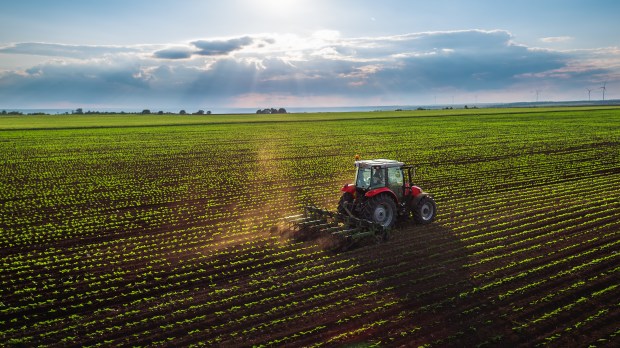The more technological we have become as humans, the more removed we are from nature and where our food comes from. Furthermore, with more people fleeing the countryside to live in the city, the city itself is ever expanding and creating new problems.
This has become an increasingly difficult situation, as St. Paul VI pointed out in his apostolic letter Octogesima Adveniens, speaking about the unique problems of increased urbanization.
After long centuries, agrarian civilization is weakening. Is sufficient attention being devoted to the arrangement and improvement of the life of the country people, whose inferior and at times miserable economic situation provokes the flight to the unhappy crowded conditions of the city outskirts, where neither employment nor housing awaits them?…Is not the rise of an urban civilization which accompanies the advance of industrial civilization a true challenge to the wisdom of man, to his capacity for organization and to his farseeing imagination?
Even more so, this increase in urbanization has led to the dissolution of family farms and the rise of industrial centers of agriculture, further impacting the care of creation. Pope Francis laments this industrialized approach to farming in his encyclical Laudato si’.
[M]any birds and insects which disappear due to synthetic agrotoxins are helpful for agriculture: their disappearance will have to be compensated for by yet other techniques which may well prove harmful … We seem to think that we can substitute an irreplaceable and irretrievable beauty with something which we have created ourselves.
Farming as a vocation
All of these new problems have been decades in the making. St. John XXIII saw this in the middle of the 20th century and wrote about it in his encyclical, Mater et Magistra.
First, with regard to agriculture, it would not appear that the rural population as a whole is decreasing, but it is an undeniable fact that many people are moving away from their farms into more thickly populated areas as well as into the cities themselves.
He saw this as presenting unique problems, leading to an unbalanced economy, too heavily invested in industry and not enough in agriculture.
Furthermore, he saw farming as an essential part of Christian culture, especially in regards to family farms.
If we hold to a human and Christian concept of man and the family, we are bound to consider as an ideal that form of [agricultural] enterprise which is modelled on the basis of a community of persons working together for the advancement of their mutual interests in accordance with the principles of justice and Christian teaching. We are bound above all to consider as an ideal the kind of farm which is owned and managed by the family. Every effort must be made in the prevailing circumstances to give effective encouragement to farming enterprises of this nature.
John XXIII mentions that farming, and family farms in particular, could be seen as a vocation.
In the work on the farm the human personality finds every incentive for self-expression, self-development and spiritual growth. It is a work, therefore, which should be thought of as a vocation, a God-given mission, an answer to God’s call to actuate His providential, saving plan in history. It should be thought of, finally, as a noble task, undertaken with a view to raising oneself and others to a higher degree of civilization.
While not everyone can (or should) be a farmer, it is a good reminder to us all that farming is a valid vocation and can lead to a fulfilling life.
It may not be easy, but farming can reap a bounteous harvest when seen in God’s divine plan.



